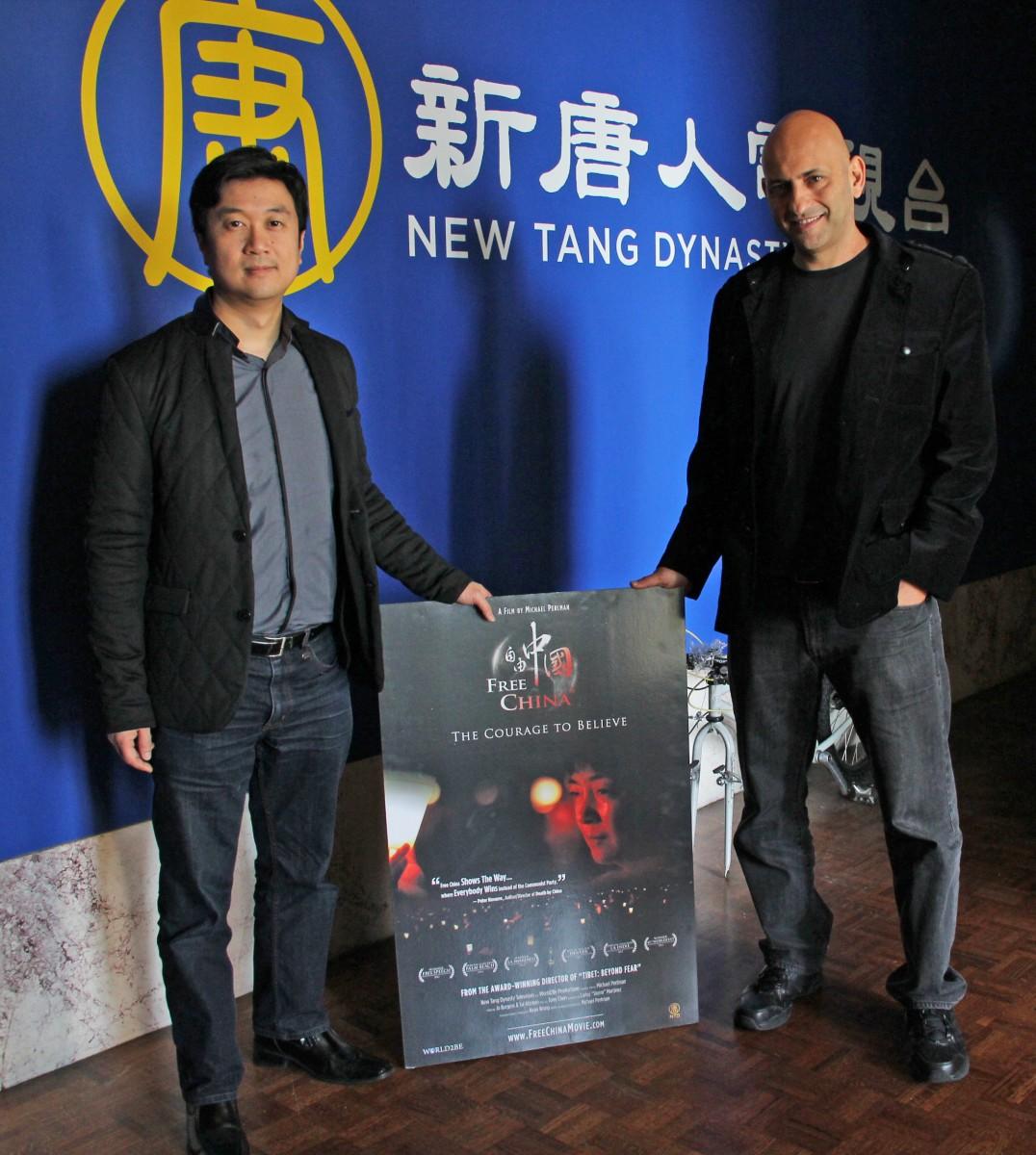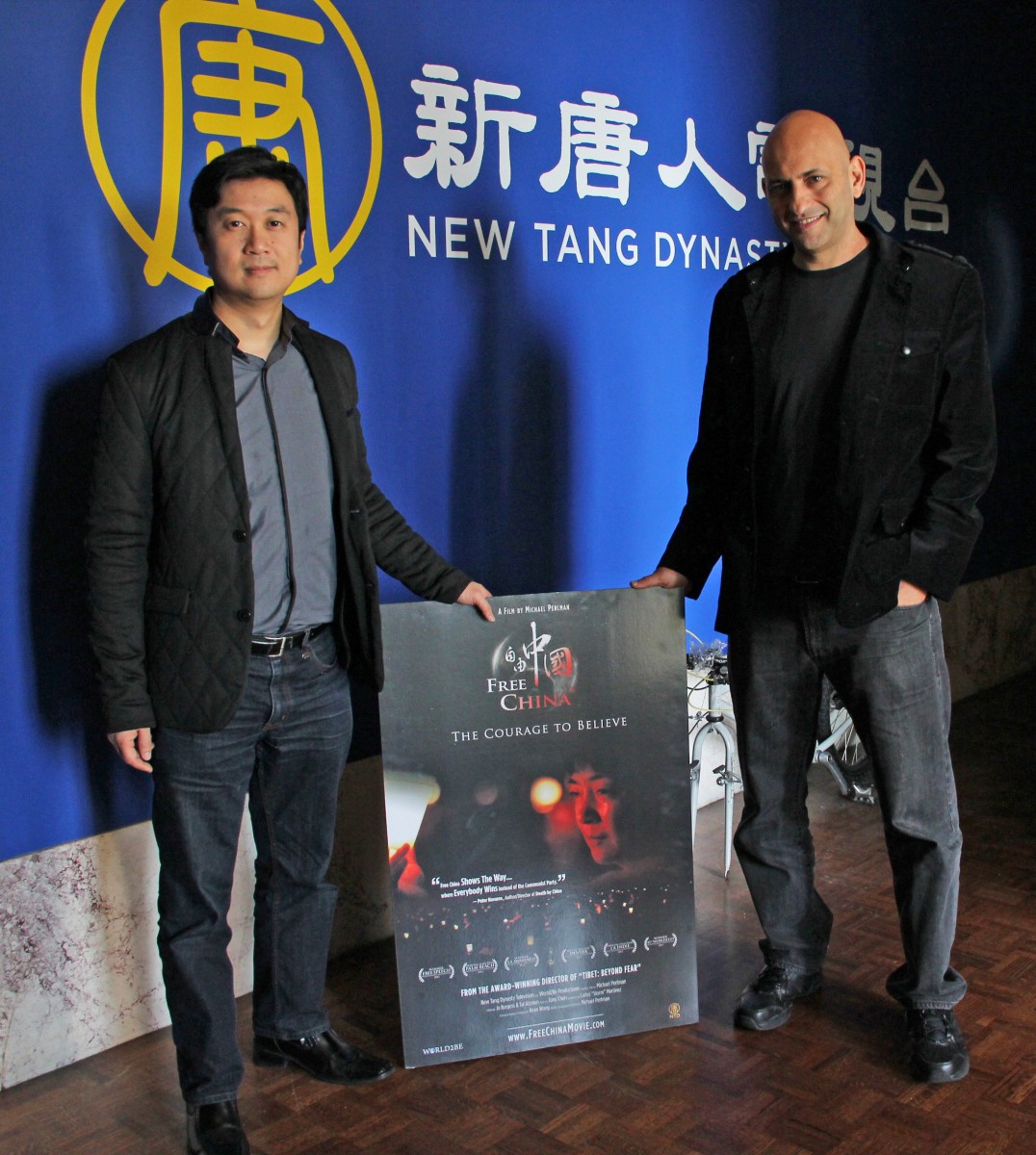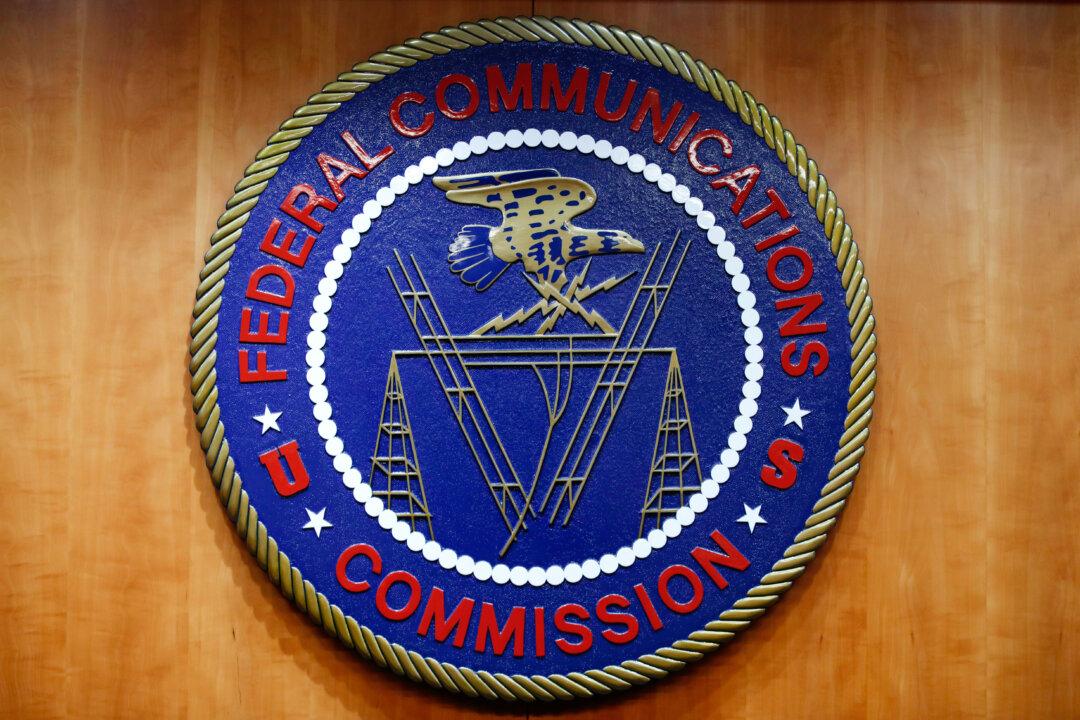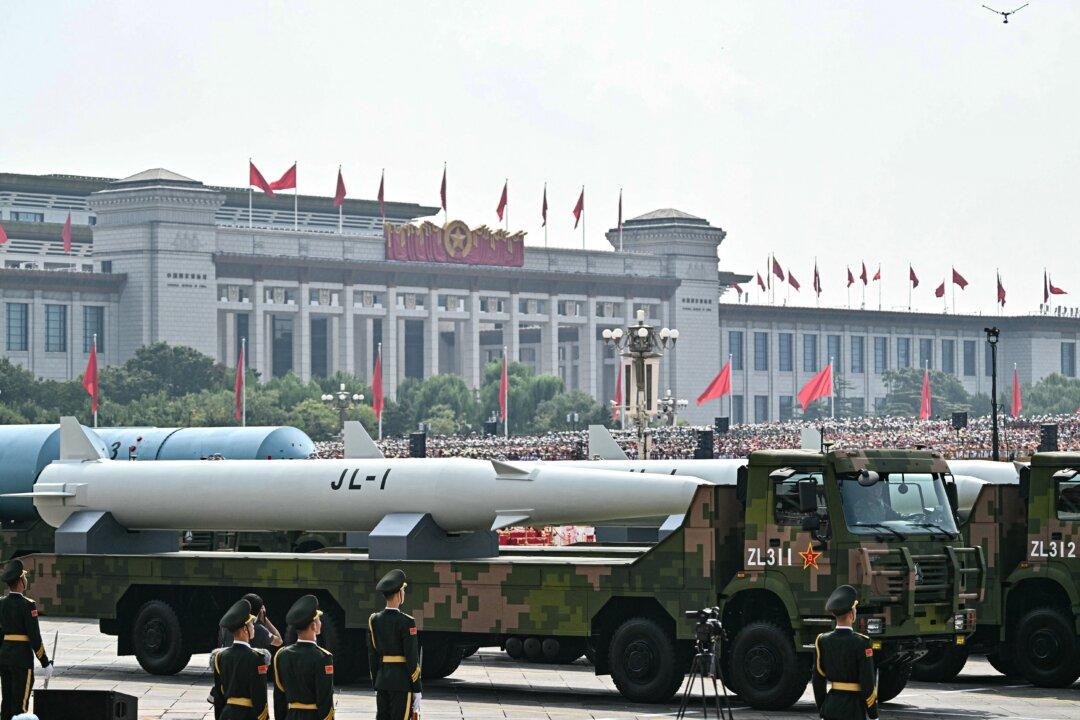SAN FRANCISCO—Ripples of a movement to free China are spreading throughout the Bay area, say two documentary filmmakers.
The 53-minute-long “Free China: The Courage to Believe” screened in Sacramento, San Jose, and San Francisco last week with director Michael Perlman and producer Kean Wong in attendance.
As a result of these screenings, Perlman said, there are now over a dozen more screenings planned in the Bay Area for Rotary clubs, universities, and the state Chamber of Commerce.
“At Google headquarters, people [were] coming up to us afterward saying they wanted to be directly involved in helping promote Internet freedom. That’s a big deal,” Perlman said. “We’ve had different [professors] coming up to us saying ‘we want to have different screenings at our schools.’”
The film tells the stories of two Falun Gong practitioners—Jennifer Zeng, a former Party member, and Dr. Charles Lee, an American businessman, and how they endured the Chinese Communist Party’s persecution of their spiritual belief.
Perlman, the director of “Tibet: Beyond Fear,” said he feels a personal responsibility to free China.
“I had no idea there were more than 70 million Falun Gong practitioners in China before the crackdown. And almost no one I knew knew about it either,” Perlman said. “I thought that it was really important to get this into the mainstream consciousness, that this was a beautiful movement, a peaceful movement, that was being so oppressed.”
Three years ago, Perlman and Wong met at a book-signing event. Perlman had just made a film about bringing freedom to Tibet, and Wong said there was an “instant karmic connection.” They shook hands to make a movie to free China that same night.
“We said, hey, we really have to free China in order to free Tibet. That would be an incredible thing to be a part of,” Perlman said. This was his first encounter with the persecution of Falun Gong, and as someone with a deep connection with the teachings of Buddhism and Taoism, Perlman’s first reaction was complete shock “and then a sense of responsibility to get the word out.”
For Wong, this had been a project sitting in the back of his mind for 11 years, as well as an issue close to his heart.
“My grandparents left China about a hundred years ago, but we also grew up in a very traditional Chinese family in Australia,” Wong recounts. “I remember during the 1989 Tiananmen Square massacre, I was in high school, and that affected me deeply. I spent all summer writing about that, for school as well. I really felt helpless. I really felt, well what can we do against this monolithic dictatorship?”
[youtube]LUYF2U4IKgE[/youtube]
Ten years later, when he'd thought China had gotten to a state where it was emerging, the persecution of Falun Gong inside China began. Wong, who, along with his family, practices Falun Gong, met Zeng in 2001 when she escaped China, smuggling out her memoir.
“I helped her with her political asylum, how to get her refugee status. Those months really helped me change my life, in a huge way,” Wong said. “A few years later in the back of my mind I thought, someone’s going to make a film about Jennifer’s life. I mentioned that to her when I first met her 11 years ago.”
Zeng had written a book about her experience in being sent to labor camps and tortured for her beliefs.
“To me, it was a mother’s story,” Perlman said. “She’s trying to get back home, and how does she balance getting back home with staying true to her beliefs?”
Zeng was a Communist Party member and had grown up with the belief that the Party was glorious.
When Falun Gong first emerged in China, it became widely popular in the country and the health benefits were even lauded by the Party. When the practice was banned in 1999, Zeng couldn’t believe it, but did not agree to stop practicing and was arrested.
Renouncing the practice was the only chance this mother had to get back to her family.
Her emotional decision was very poignant for him, Perlman said.
“It’s called ‘Courage to Believe,’ but that doesn’t mean you don’t have fear,” Perlman said. “Jennifer, she was afraid.”
Perlman had read Zeng’s book and learned how under severe mental and physical torture, many of the practitioners recant.
“But they don’t talk about it, so it’s like this hidden secret of shame. ... She realized that she needed to tell the world her story ... in the hopes that the many people that she left behind in the prison camps would be released,” Perlman said.
Lee, on the other hand, is an American citizen, whom Wong described as heroic for going back to China to try to save his people.
“That’s like the every-man story, of someone who’s living a good life. Are they going to enjoy it?... Or are they going to feel like they have more of a purpose?” Perlman said. “He did it, which is a lot. Going back to China, helping free China. That’s a great motivator.”
The duo tackled the issue from all sides, calling on experts like David Kilgour, the former Canadian Secretary of State who was at the forefront of exposing the organ harvesting of Falun Gong practitioners in China; Representative Chris Smith, the chair of Congressional-Executive Commission in China; and Ethan Gutmann, businessman and author of “Losing the New China” to explain the economic, political, and ethical aspects of this ongoing persecution.
“By doing this, by promoting a free China, this is really beneficial to America,” Perlman said.
“There are elements in China that want a more aggressive military, and there are elements in China that are putting themselves more out there on the international stage and supporting regimes that are very oppressive to their own people, or hostile to the United States. And having a free China will make America a safer country.”
A movement for a free China is already under way, and Perlman and Wong hope that this film helps to further speed up the effort.
“You’re already seeing this. They estimate about 150,000 protests going on inside China [each year]. There [are] so many people that know there has to be positive change inside China, ranging from workers who aren’t paid to farmers [whose] lands [are] being confiscated, to environmental groups,” Perlman said.
The first step is awareness, Wong says, awareness about organ harvesting, prison slave labor, and the persecution of various beliefs within China. The second is creating grassroots efforts to move people from passive viewers to advocates. This film does both.
“It’s creating awareness through ... one of the most powerful mediums,” Wong said. “It does the moving and inspiring people to take action.”
“We’re doing hundreds of screenings,” Wong said. A theatrical as well as multi-medium release is planned for this summer, and the film will be available online for streaming and downloading as well. Wong won’t name names, but there are also plans to record a song for Free China with a Hollywood actor, and those additional seven minutes will be in the film for its summer release.
“The next phase—we want to get this into China,” Wong said.
“Internet can spread everywhere,” Wong said. Media groups like New Tang Dynasty Television, the co-producer of the film, have long been working on breaking down the firewall in China, allowing circulation of free information.
“And when people can communicate freely amongst themselves, then they can continue to mobilize their efforts on a wide range of issues inside China,” Perlman said.
Wong hopes the future leaders of China will see the film and be inspired. “Once more people learn about the truth, about what’s really happening inside China, about the injustices—no doubt that will bring about the future Ghandis and Martin Luther Kings of the world inside China. And they will be the future leaders [who] hopefully bring about greater things.”
“I think ultimately once you’ve created a grassroots campaign, hopefully we can inspire people inside China—to awaken to justice, in a peaceful way,” Wong said.







